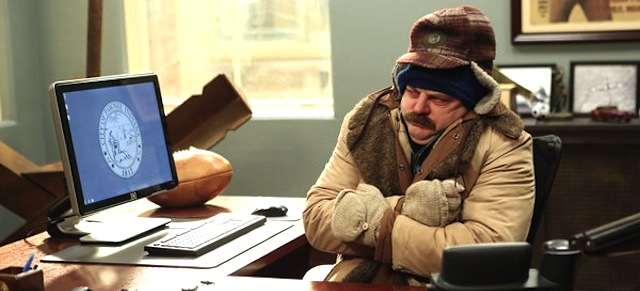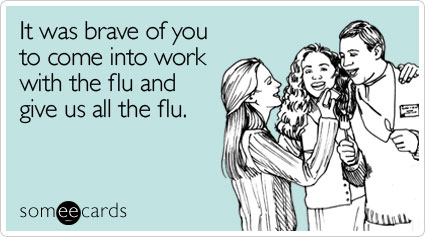

The New Yorker made me laugh out loud this morning with their poking fun at the ever-escalating ‘cult of productivity’ in this country. In their Daily Shouts column, “3 under 3”, Marc Philippe Eskenazi introduced us to “the innovators and disruptors of 2014, all under the age of three years old, all impatient to change the world.” It’s really funny. For example, their top “pick” is two and a half year old Cheryl Kloberman, who is apparently making major strides as an Energy Conservationist:
What does it take to power an entire household with a flick of a switch? This toddler knows, because she turned on the lights of her apartment all by herself. In 2013, Cheryl racked up over two thousand nap-hours. That’s a whole lot of energy saved for other purposes, like growing. Cheryl makes a point of personally visiting her grandparents in Minnesota once every two and a half years. Her parakeet’s name is Green Bean.
The smile turned a little less smiley when I remembered what I watched last night, the immaculate “food-porn” documentary, Jiro Dreams of Sushi. We’ve recommended it before, and it’s well, well worth the time (just be sure to eat beforehand). The film profiles one of the world’s top sushi chefs, 85 year-old Jiro, a man who gives new meaning to the word ‘vocation’.
I had read that the movie was an affecting look at purpose and perfection, the beauty as well as the cost, and I wasn’t disappointed. This is a man truly above (culinary) reproach. Nothing but the best, in every aspect, all the time, no exceptions, no mercy. In one particularly telling scene, Jiro himself tells the story about how, when his two boys were little, he was home so little (ever), that on those rare days when he slept ‘in’, his son would run crying to his mother, telling her there was a strange man in their house. He was a man on a mission to master his craft, and that mission required 100% of his energy and focus. Jiro is not joking around, and while you certainly feel for his doomed offspring–say they do miraculously rise to the level of their father, they’ll still only be seen as having done what’s expected–there’s something admirable about someone who is willing to swallow the whole loaf (or uni) when it comes to the Law of anything, let alone sushi.

And yet, one of the refrains of the film is how there’s always room to improve, even for someone as skilled as Jiro. A technique that could be honed ever so slightly, an ingredient that could be sourced better. What comes across is that there is no such thing as good enough. To live is to work and to work is to live, period. Not only do his boys doubt that Jiro will ever retire, but also we see how visibly uncomfortable he is when forced to observe national holidays. But director David Gelb doesn’t judge Jiro–he simply depicts what it takes to achieve perfection. Gelb wisely lets the work/food speak for itself, and what we see is that perfection itself is far from “bad”. It is the very definition of good, in fact. Who in their right mind wouldn’t want to occupy one of the ten seats in his restaurant?! Or try a piece of that ‘lean tuna’?! Yes please.
Part of what makes the documentary so successful is how, er, perfectly it depicts a self-contained world. Sushi is a Japanese art form that goes back millennia, only recently imported to the West. No one in the film utters a world of English. Their shrimp and ‘our’ shrimp have little in common. Which is why it might be tempting to write off Jiro’s ethic as something foreign to Western sensibilities. But then you come across The New Yorker’s jokes, or a column like the one that appeared in the Times over the holiday, Daniel Engbar’s “Quit Whining About Your Sick Colleague” and you think maybe European is a better fit. Engbar takes up the phenomenon that rears its head in plenty of American offices this time of year, our conflicted relationship with our sniffling colleague, “who comes in to work, red-eyed and drippy, and puts his germy fingers on the handle of the coffeepot or the button of the microwave door. He could have called in sick, but that would take a modicum of decency. No, this guy is a “team player.” He’s a cubicle Cal Ripken Jr., the office iron man with Sudafed.” Every office has one.
Engbar cuts through the popular handwringing about contracting a virus from a sick co-worker. First, he tells us that most of the well-publicized studies about contagiousness at the office are sponsored by drug companies that have figured out the same thing that the sleep industry has–to sell Americans on wellness, it’s much much more lucrative to sell productivity than health. You’re much more likely to get sick from your kids, or from public transportation, or from your doctor’s office (!) than you are at your place of employment, for example. But then he gets to the real issue, which he sees as yet another dysfunction of performancism:
What motivates our colleague to show up in an unwell state, and why should his presence in the office make the rest of us so edgy, sometimes to the point of anger? Perhaps we all share a common ailment of the workplace, a condition whose major symptom is the morbid fear of downtime. Maybe we’re afraid of staying home because we’re so well-trained to stay at work.
If overwork can be taken as a sickness in itself, then America is a bastion of infirmity. We clock in some 1,788 hours a year, 120 more than our counterparts in Britain, 300 more than our counterparts in France and 400 more than our counterparts in Germany. (Workaholism is most acute among people with at least a college education — i.e., the office type.) America, notoriously, does not require employers to offer paid sick leave. Employers grant new employees just eight sick days, on average, down 20 percent since 1993, and that’s only what we have on paper.
Americans have always had a tendency to work strange hours, late at night or over weekends, notes Daniel S. Hamermesh, an economist at the University of Texas at Austin. He thinks the pattern arises from our heavy-handed office culture: If you’re not overworked — or won’t go into the office sick — you seem to be a slouch. “We’ve gotten to a point where no one wants to depart from the presenteeism, but we’re all worse off because of it,” he told me. “It’s a Gordian knot.”
In other words, the American workplace has gotten tangled up in endless searches for a dose of extra credit. Since we’re all in competition — if I slow down, you get ahead — no one has an incentive to untie the knot. When we see a colleague with a runny nose, it only makes that conflict more explicit. We act as if we’re worried for his health, or troubled that his work-life balance might be out of whack, but in truth we’re just as driven by the mania for overwork. We’d prefer for him to take his sick days now only so that we won’t have to, down the line.
The problem is, putting pressure on the presentee only serves to fortify the status quo. It treats illness as a threat to productivity rather than a source of suffering.
I suppose it should be noted that none of this is particularly novel (or fresh to this site), so please pardon the redundancy (we are mockingbirds after all). This stuff is everywhere, from the way we work to the way we play to the television we watch. Take for instance Homeland, which my wife and I binged on over the break (season 4). It may not be the best show ever, but it does an expert job of portraying this dynamic, i.e. of someone who would rather do anything than slow down and deal with themselves, someone whose fear of (personal) helplessness is being harnessed for the good of her country/audience. External prisons are a whole lot easier to manage than internal ones, and not just for Carrie Mathison.
If there’s an upside here, it would be the increasingly stark relief our culture casts on anyone claiming to be a Great Physician, anyone so singularly focused on the sick, so genuinely present, whose ministry was anything but efficient, who concentrated on the idle as much if not more than the occupied. I’m afraid Jiro wouldn’t be interested in the kind of fish such a person might have caught, especially the man-shaped ones, but that doesn’t make the fisher any less perfect. Call him a knot-cutter if you will, but not an Alexander. I call him the One under 33. Pretty infectious, eh?
https://www.youtube.com/watch?v=y2DK3UO4_UQ

COMMENTS
Leave a Reply













